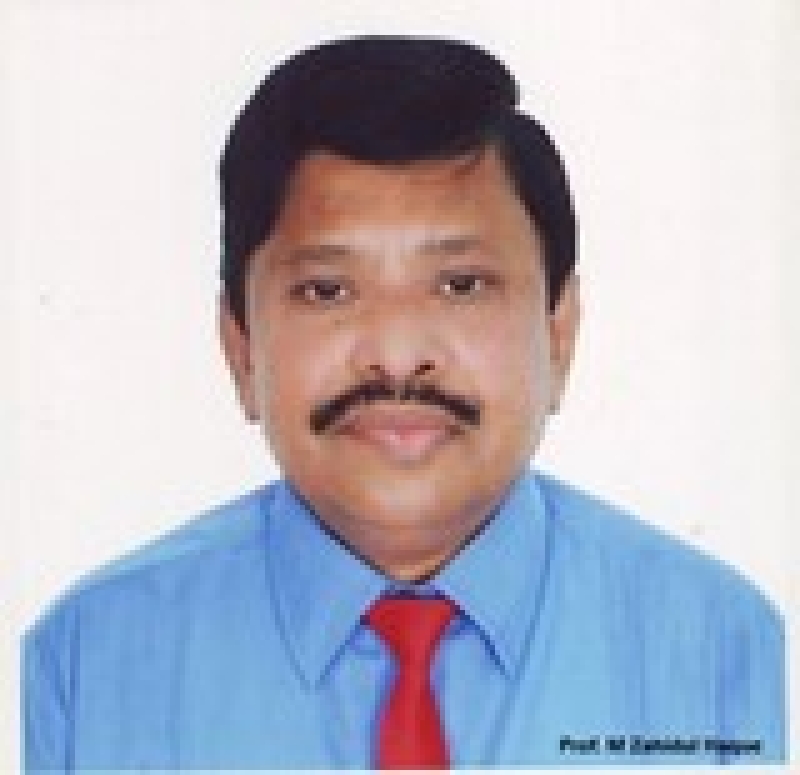- Yunus Urges Voters to Shape a ‘New Bangladesh’ |
- Bangladesh Polls: Campaign Ends as Voters Weigh Pledges |
- Bangladesh Heads to First Gen Z-Driven Competitive Poll |
- EC Lifts Mobile Phone Ban, Bars Photos Inside Booths |
- Youth participation vital to BD’s democratic future: C’wealth Group |
Some thoughts on International Potato Day 2024

Prof. M Zahidul Haque
Prof. M Zahidul Haque and Tanzila Rahman
EVERYDAY is a Potato day because there is not even a single day when people around the globe do not consume potatoes or potato-based food-items. Potato is popular and loved by people in every nook and corner of our dear planet.
Tanzila Rahman, UAO, Ramu
The United Nations General Assembly in 2023 decided to designate 30 May as the ‘International Day of Potato’ to appreciate the nutritional, economic, environmental and cultural values of potato plus its contribution as a precious food resource and as a generator of income for rural as well as urban people.
The first ever ‘International Day of Potato’ proclaimed by the UN General Assembly is being celebrated on May 30, 2024 with the theme—“Harvesting Diversity, Feeding Hope” underscoring the fact that with over 5000 improved varieties plus farmers’ varieties of potato, there are ample options for diverse production systems, culinary preferences and industrial applications of potatoes.
This is important under the present context when agriculture-food systems are at risk for various reasons including over population, climate change, etc.
The International Day of Potato is observed with the aim to raising public awareness about the importance of potatoes towards enhancing food security and to pleading for the replication of best practices and development of sustainable value chains. This day for potato will also contribute to achieving the UN Sustainable Goals (SDGs) through motivating people and governments to adopt recommended practices in potato production, storage and processing.
Potato (Solanum tuberosum) is botanically a vegetable. Potato is the third major food crop in the world after rice and wheat. More than a billion people worldwide eat potatoes. Potatoes are eaten as a staple food in many countries of the world.
Potatoes are one of the versatile vegetables which can be consumed in different forms—boiled, mashed, roasted and fried. Americans, for instance, on average, consumes at least one potato a day. China is the largest potato growers in the world. Bangladesh is the 15 th potato producing country in the world ranking and 4 th within Asia.
Potato is an environ-friendly crop which is easy to grow and requires low amounts of water, fertilizer or chemical additives than other crops, vegetables and fruits. Potatoes can be grown at an elevation up to 4,700 meters above the sea level.
Potatoes are rich in Vitamin-C, iron, riboflavin, potassium and carbohydrates. Vitamin-C in potato prevents scurvy while potassium—an electrolyte helps in the normal functioning of our heart, muscles and nervous system. Potato skin contains fiber which is essential for a healthy digestive system. A chemical in potato peel prevents bacteria from attaching to cells.
Potatoes are 99.9% fat free. Even a person with diabetes can eat potatoes. The American Diabetes Association (ADA) recommended eating starchy vegetables, such as, potatoes-as a part of healthful diet.
Potatoes are a climate-friendly crop because they produce low level greenhouse gas emissions in comparison to other crops. Potato was even chosen for growing in space as potatoes are highly resistant to various climate conditions plus their excellent nutrient uptake capability.
Potato plants can also help in monitoring nuclear radiation particularly around a nuclear power generation plant because of its characteristics of glowing fluorescent green when exposed to radiation. Since nuclear energy production is environment-friendly, many countries of the world including Bangladesh are moving towards carbon-free nuclear power generation. A recently designed Photosensor device has proved potato plants’ efficacy in detecting radioactive pollution around a nuclear facility’s surroundings. It may be indicated here that potato plant is more reliable than currently used mechanical
detector—Dosimeter.
Potato Plastic made of potato starch is biodegradable—it decomposes to soil just in two months or so. Potatoes have many medicinal and industrial uses too.
Meanwhile it is healthy to cook potatoes through boiling, steaming or microwave them without adding other ingredients to keep cooked potatoes less in sugar, salt and fat contents. Eating deep fried food including potato, chicken, etc. may increase cholesterol and triglycerides level. One should not consume green potatoes, sprouts and eyes of potatoes because these contain chemical (Solanine) toxic to human and harmful to health.
Bangladesh being one of the major potato producers exports potatoes. Potato can to a great extent ensure steady supply of food for the ever increasing population of Bangladesh. However, Bangladesh needs to increase food crop production including potato in her limited cultivable land through extension of modern production technologies. It may be mentioned here that Bangladesh owns only 0.1% of the world’s cultivable lands where food is grown for 2.7% of the global population living in Bangladesh. There is a great scope for earning foreign currency through increasing potato export. The Ministry of Agriculture, Government of the People’s Republic of Bangladesh through the Department of Agriculture Extension (DAE) and Bangladesh Agricultural Development Corporation (BADC) has been supporting potato growers to increase export of potatoes since 2019 and potato export has increased as a result.
In fine, potatoes have a great potential to eradicating hunger and malnutrition globally. So, we need to increase potato production following the ‘International Day of Potato 2024’ theme—“Harvesting Diversity, Feeding Hope”.
(Prof. M Zahidul Haque is former Professor of Agricultural Extension at Sher-e- Bangla Agricultural University, Dhaka and Tanzila Rahman (BCS-Agri)) is currently Upazila Agriculture Officer of DAE in Ramu, Cox’s Bazar)

